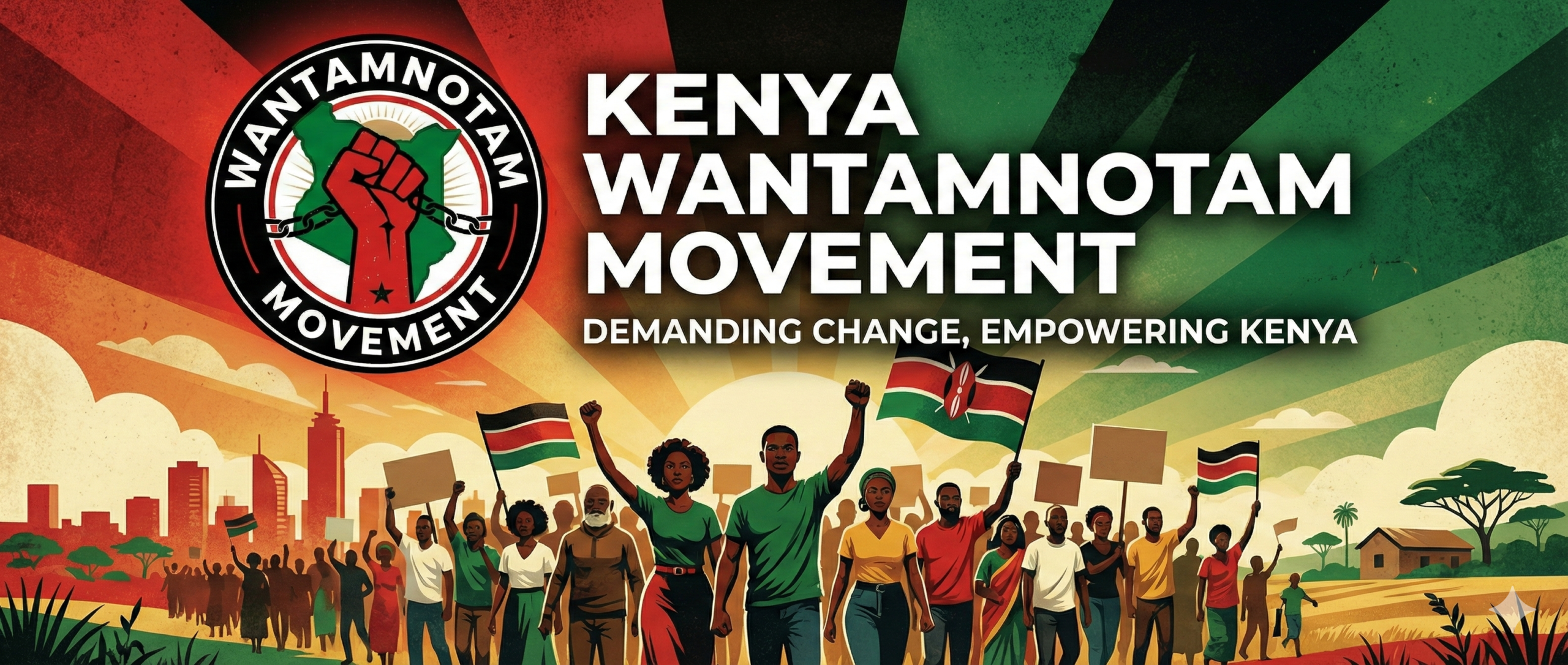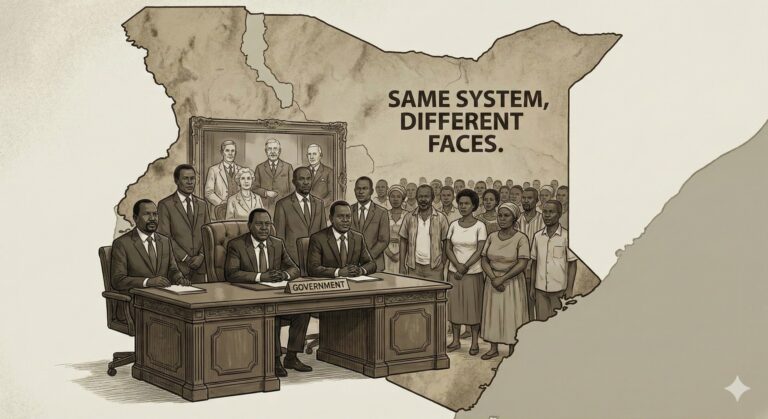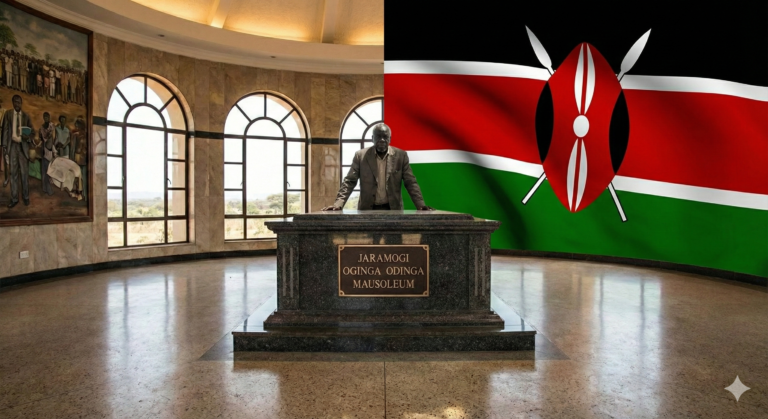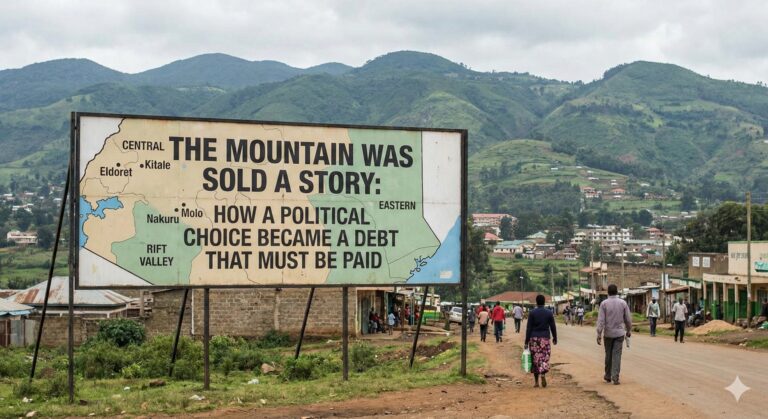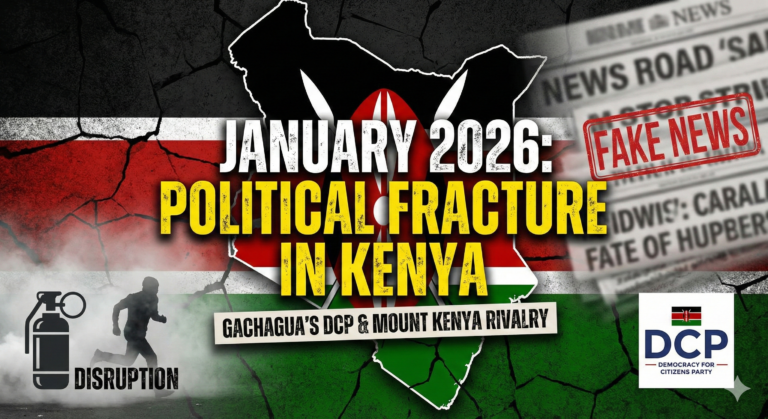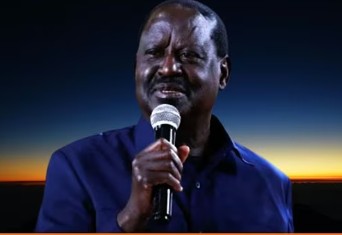
The Long Embrace That Never Came: Why Raila’s Allegiance to Ruto Won’t Resonate with Kenyans
Whispers filled the air. Photos surfaced. Smiles exchanged. Raila Odinga and William Ruto, once bitter political enemies, stood side by side—not as adversaries, but with an air of forced camaraderie. Kenyans, however, were far from convinced. This wasn’t a new spectacle. They had seen it before. They recalled 2018 and how it ended.
For the millions standing in long queues for unga, waiting in endless lines at NHIF offices, and desperately seeking extensions from landlords, the handshake seemed like nothing more than political theater. A performance with no real substance. The same promises that had failed them before were being recycled. These deals—no matter how glossy—wouldn’t feed them. Not then, not now.
Loyalty Has a Shelf Life
Raila Odinga in 2005 isn’t the same man as Raila Odinga in 2025. And Ruto is acutely aware of this. So is the youthful voter, aged under thirty-five. Loyalty in politics isn’t a commodity that lasts across decades, especially when you continue to sit at tables with the very figures you once deemed the problem. This inconsistency, this lack of clear ideological direction, sticks with the electorate.
It’s no longer about Raila’s past—who he was or who he said he was. What matters now is who he’s willing to align himself with today. Ruto doesn’t seek advice. He seeks endorsement. And with that endorsement comes baggage that today’s voter doesn’t want to carry.
The Youth Don’t Care About Handshakes
In the bustling slums of Kibra, the rural villages of Siaya, and the apartment blocks of Umoja, there’s a collective exhaustion that even the most polished political propaganda can’t erase. The youth, particularly, have grown disillusioned with the endless cycle of smiles exchanged between men in suits. They’ve seen this script before. The same promises of change delivered through press conferences, only to evaporate without a trace.
The youth care about tangible issues: food prices, school fees, and affordable internet access. They see no direct link between Raila and Ruto’s handshakes and the challenges they face daily. If anything, these political alliances make them trust both men even less. When your so-called champions break bread with the very villains they once opposed, the entire narrative starts to feel inauthentic.
Ruto’s Real Problem Isn’t Raila — It’s Himself
Ruto’s victory in 2022 was driven by noise, power, and a promise. The wheelbarrow. The hustler anthem. The anger of the marginalized counties. But two years down the line, the heat has dissipated, and the once-rousing slogans now ring hollow. No amount of Raila’s blessing can salvage what has become an increasingly unpopular administration.
His government has been marred by scandal, public outcry, and escalating costs. Civil servants are disgruntled, and the people’s wallets are lighter. No political alliance, not even Raila’s support, can disguise the fact that Ruto’s government has failed to deliver. The promises of a better life for the hustlers have not materialized. Roads remain in disrepair, public workers are underpaid, and the youth’s hopes for change continue to fade.
The Hustler Narrative Has Lost Its Appeal
Once, the hustler narrative felt fresh and relatable. It resonated with the masses. But now, the same people who once supported Ruto are witnessing government contracts go to friends and family members, taxes rising while the rich seem untouched, and a man who once promised to fight for the poor now dining with billionaires.
Raila’s entrance into this narrative does nothing to clean up the mess—it only muddies it further. The people who believed in Ruto did so because they saw him as different from Raila. Bringing them together erases any sense of distinction. It’s like selling a broken radio as new just by slapping a new label on it.
Kenya Is Not a Transaction
Politics in Kenya has often been treated like a marketplace, where power deals are sold like merchandise. But this time, the shelf is gathering dust. Kenyans are no longer buying what’s on offer. Raila and Ruto’s handshake won’t convince the struggling mother in Kawangware that her life will improve.
This isn’t 2002, 2007, or 2013. The electorate has changed. The voter is no longer swayed by political bargains made in smoky rooms or on luxurious podiums. Kenyans want results—tangible, measurable change. They’ve seen this dance before, and they’re not buying it anymore.
Raila Is No Longer the Messiah of Power Deals
For years, Raila has served as the political lifeline when things went wrong. When Jubilee faltered, Raila was called in as the temporary solution. When Ruto needed insulation, he attempted to cozy up to Raila. But this isn’t 2002, and Raila no longer wields the influence he once did.
Raila may have controlled the streets once, but he no longer controls the issues that matter to Kenyans. He doesn’t control the hunger, the poverty, or the disillusionment. All he has now is history—and history alone isn’t enough to deliver votes anymore.
The Betrayals People Don’t Forget
Kenyans have long memories. They remember the street protests. They remember the tear gas, the rallies, the chants. They remember believing in Raila’s cause. But they also remember the betrayal—when Raila stood by Uhuru, the man who many believed was part of the system that oppressed them. That’s a memory that won’t fade easily.
If Raila tries to team up with Ruto again in 2027, it won’t be forgiveness that awaits him. It will be questions, and worse—silence. The crowd won’t cheer. They won’t boo. They’ll simply walk away. And that indifference is far more dangerous than any vocal opposition.
A Country That Outgrew Political Brokerage
Ruto views the Kenyan political landscape like a chessboard—if Raila supports him, then the Mount Kenya region might follow. If Raila stays neutral, then the opposition may fragment. But this outdated logic no longer holds sway.
Kenya has moved past this. This isn’t about Raila offering support. It’s about Kenya no longer needing him to. The real power now lies with the people—the boda boda riders, the teachers, the students, the jobless youth, the urban poor. They’re no longer concerned with political deals made behind closed doors. They’re focused on the issues that affect their lives daily. And they’re not picking sides based on who met who at State House.
CLICK HERE:Listen To WANTAMNOTAM PODCAST AND TAKE ACTION
